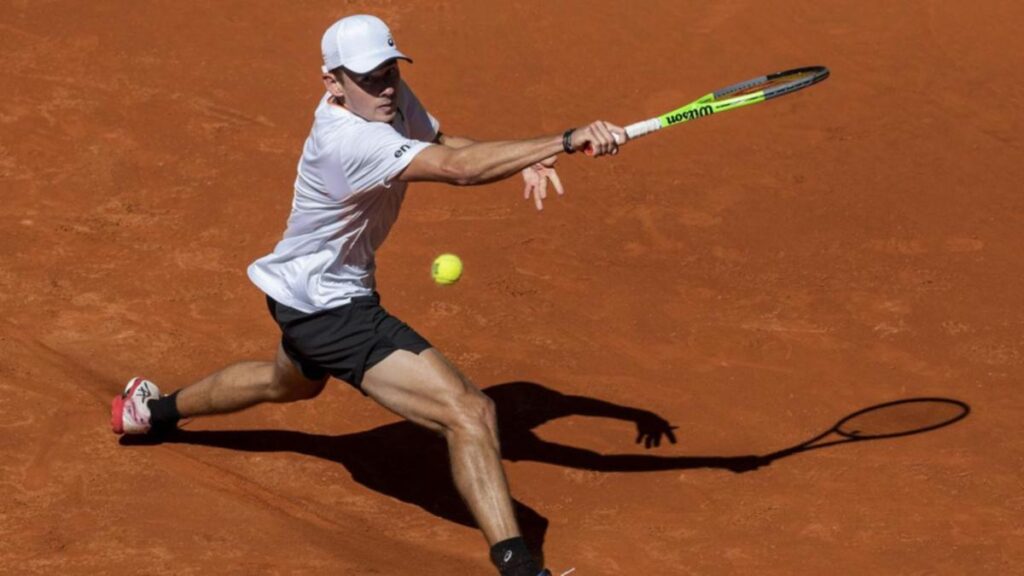With each match, Alex de Minaur is becoming increasingly at ease on clay, marking the start of his latest title pursuit at the Madrid Open with a convincing win.
Australia’s top player recorded only nine unforced errors in a decisive 6-2 6-3 victory over Italy’s Lorenzo Sonego on Saturday, moving on to face Canadian Denis Shapovalov in the third round after a brief match lasting just over an hour.
Ranked No. 7 in the world, De Minaur has gradually adapted to the clay this season, having reached the semifinals in Monte Carlo and the quarterfinals in Barcelona. He notes that he feels like a transformed player this year, now brimming with confidence on a surface that previously posed challenges, especially after his success at last year’s French Open.
Aiming to surpass his quarterfinal finish in Paris from last year, the 26-year-old is eyeing a significant run in the Masters 1000 event at the higher-altitude Caja Magica courts in Madrid, which could set the stage for his journey to Roland Garros.
“I started off by getting broken in the first game, and everything happened quite fast after that,” de Minaur reflected on his shaky beginning.
“However, I was pleased with my mental resilience, bouncing back immediately, and I ended up playing some excellent tennis. I’m really happy about that.”
Indeed, after losing his opening service game, de Minaur quickly retaliated by breaking world No. 43 Sonego, whom he has now defeated four times, including three times with notable dominance in the first set.
The Australian’s performance on return was remarkable, and he maintained solid control while serving, winning 82% of his first serves and a striking 92% of his second serves.
“Honestly, my serve has been the biggest factor in my success. Today was a fantastic serving day, which made things much easier for me,” de Minaur noted.
“It also helps to know what to expect here. I’m aware of what’s typical. At times, the ball can behave a bit differently in the thin air.”
Regarding his overall improvement on clay, he shared: “You’ll notice fewer unforced errors from me, and simultaneously, I’m being more aggressive and finding ways to challenge my opponents differently.”


